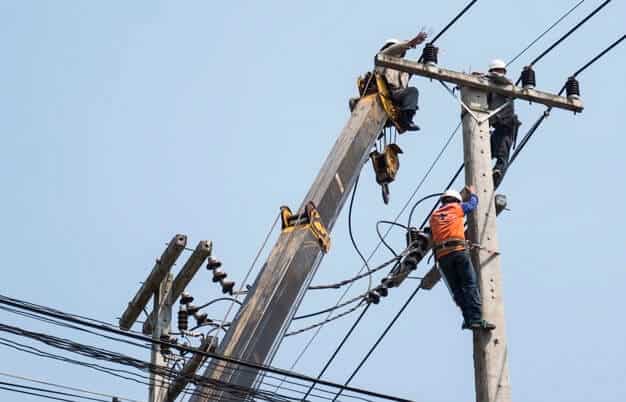If you personally know multiple engineers who work in different branches of the industry; you may wonder what led them to take their chosen path. Engineering is a massive field, and according to Glassdoor’s list detailing the 50 best occupations in America; three of the top five for 2020 are in the engineering realm. (Glassdoor, 2020)
The role of electrical engineer is routinely included in that annual Glassdoor list. Aside from the fact that the job pays well and typical hours run from 9 a.m. to 5 p.m.; you may wonder what electrical engineers do on a day-to-day basis that makes this line of work worth pursuing.
The following describes some of the responsibilities people take on in this sphere of engineering, including where electrical engineers work. The problems they typically solve, and the skill sets you need to thrive if electrical engineering seems intriguing.
What Does an Electrical Engineer Do Daily?
According to the Bureau of Labor Statistics (BLS); electrical engineers design and develop the electrical equipment that consumers and business owners use for various purposes. Classic examples of items electrical engineers play a role in bringing to market; this includes electric motors, navigation systems, power generation equipment and a wide variety of digital systems; such as smartphones, tablets and other handheld personal devices.
While electrical engineering traces back to the late 19th century and the inception of the light bulb; this occupation has surged in popularity, demand and breadth of application in more recent years; due to the proliferation of digital and electrical systems in modern society. A 2018 poll by Gallup found 85% of Americans regularly use navigational apps; and nearly three-quarters use video or music streaming services. In a more recent survey also conducted by Gallup; 33% of Americans stated that they have tried digital health products, while 20% claimed to wear digital health apps.
All of these products wouldn’t be possible without the assistance of electrical engineers; who, in addition to participating in the design and development of electronic equipment; may offer a variety of testing and supervision services during the course of manufacturing. In this way, an electrical engineer may perform some of the same tasks as an electronic engineer. Electrical and electronics engineering can be confusing, as they both involve the use and study of power generation, as noted by Electronic Products. The best way to differentiate between the two is scale. Whereas electrical engineers examine the macro – the large-scale factors involved in the transmission; reception and utilization of electricity for energy use – electronic engineers handle the micro by building the circuitry and components that all of those products and systems need to function properly.
Here are a few other general duties electrical engineers may perform, per data from the BLS:
- Perform quality assurance testing to see to it that electrical equipment is safe to use and aligns with product specifications.
- Review and inspect electrical control systems for code and compliance purposes.
- Provide troubleshooting assistance throughout the product development (manufacturer) and delivery (consumer) continuum.
- Come up with unique, innovative ways of utilizing electricity to enhance efficiency and expedience.
What Specific Kinds of Jobs may an Electrical Engineer be Involved In?
Just as engineering has many subcategories, the same can be said for electrical engineers, they’re employed by many organizations. Who they’re employed by largely influences the types of tasks and jobs they perform.
Wherever their services are in need, electrical engineers often work in partnership with other industry professionals. In residential or commercial construction, for example; an electrical engineer may coordinate with an electrician to ensure that a home or building; receives the proper installation of electrical equipment, cords, outlets and connections to the local municipal power grid. They may also team up with heating and ventilation providers to design better ways of enhancing energy efficiency. Thus, in addition to the manufacturing of electrical equipment, electrical engineers may also be tasks with the application of it.
In what Environments do Electrical Engineers Work?
Because electrical engineers; frequently distributed in many different capacities. They’re found in many different industries, including consumer products, aviation, power generation (i.e. utility companies), transportation, oil and gas as well as renewable energy. In 2018, the most recent year for which complete data was available; nearly 20% of electrical engineers in the U.S. worked in engineering services, per the BLS. An additional 9% were make us of by power, distribution and transmission companies; 7% took jobs from manufacturers specializing in navigation measurement and control instrumentation.
As for the physical environments in which they perform their duties; electrical engineers typically work in traditional indoor office settings where they can concentrate and think critically, according to the BLS. They may be able to work from home from time to time, as well. They will also, on a regular basis; visit locations where their projects are being enacted and implemented to observe, install or monitor the operation of power-generated equipment.
There were roughly 191,900 electrical engineers gainfully employed in 2018, along with 138,500 electronics engineers. The BLS predicts that job openings are poised to increase 2% over the next decade; slightly less than the national average but nonetheless resulting in an additional 8,000 jobs. Glassdoor, meanwhile, has much more optimistic expectations; predicting that there will be 7,756 job openings over the next 12 months alone.
What Types of Problems do Electrical Engineers Solve?
At their core, electrical engineers are problem-solvers. The very advent of electricity innovation was to make routine processes easier and more efficient – or to turn difficult processes into routine operations. In this day and age, where virtually everything is operating automaticallyin some way or another, consumers expect that the equipment and products they purchase will work properly and as designed. This assumption is part of the reason why electrical engineers devote much of their energy to quality assurance testing when goods are in the research, development and manufacturing phases.
Yet even when all the best practices are followed, no product is 100% perfect. Electrical engineers may, as a result, be tasked with developing instructions for consumers to help them diagnose any problems that may arise with various devices and machines. They may need to work in close consultation with the developers of the equipment, such as household appliances, to ensure that those instructions are easy to understand and implement.
When problems persist, there may be a design flaw that prevents an appliance from working as intended. Here as well, electrical engineers may be in-charge with coming up with methods by which to modify the equipment so these issues can be resolve. However, before they can do this, they may need to review consumer complaints regarding similar incidents that can help them identify trends. This assessment can help electrical engineers arrive at the root of an issue and formulate the proper remedy.
What Skills Do you Need to be an Electrical Engineer?
Similar to other occupations, electrical engineers need a blend of hard and soft skills. The former may include signal processing, an understanding of the principles of electromagnetism and digital systems design. These skills aren’t intuitive for most people, and must typically be learned and studied through academic coursework at the undergraduate and/or graduate level.
Having a diverse blend of personal soft skills is pivotal to success in electrical engineering as well, as is true of most professions. A 2019 survey conducted by CareerBuilder found more than 90% of employers factored soft skills into their determination of whether to hire certain candidates.
Communication skills are a particularly important quality for electrical engineers: Because they spend so much of their time working in conjunction with project managers, electricians, designers and various other professionals, electrical engineers must be capable of elaborating on complex material to make it more easily digestible. Such clarity is also important when electrical engineers interact with customers, whose expertise in a certain product or has little knowledge of technology. These communication skills may be specific to the spoken and written word in putting together pamphlets, manuals, frequently asked questions sections and other instructional materials.
In a similar vein, interpersonal skills are indispensable in this line of work. The relationships that electrical engineers develop with others involved in a particular project or campaign must foster on an ongoing basis so plans are; implemented correctly and team members remain on the same page. Interpersonal skills help to enhance collaboration so joint efforts are; completed seamlessly and in a complementary fashion.
Inventiveness is another essential character trait for enterprising electrical engineers. Because consumer preferences and purchase behaviors are in a constant state of flux, electrical engineers must be able to come up with new ways of developing and designing electrical equipment to remain competitive and adapt as technology improves. Few could have imagined how many things you can do with a smartphone just a decade ago; for example, but the combination of thinking outside the box and the implementation of electrical systems revolutionized the telecommunications; consumer products and control instruments industries.
Critical thinking is yet another core soft skill to hone in this branch of engineering. Because electrical engineers are responsible with solving problems, they must be able to properly define the problem so they can come up with the best solution. This is always easier presume than done, which is why engineers must be in an environment that allows them to concentrate and apply the hard skills that they likely first learned in high school and honed in college.
What Qualifications Do You Need to Apply for Electrical Engineering Jobs?
To be hireable, electrical engineers must have graduated with a bachelor’s degree from an accredited institution and majored in engineering or similar field, as noted by the BLS. Depending on the job that’s interesting to you, you may also need hands-on experience, which you may be able to obtain through a cooperative or internship program overseen by an accredited university. There’s no such thing as having too much practical experience, and programs that offer it should always be get advantage of when they are available.
While a graduate degree is not necessarily require to become an electrical engineer, it can be an invaluable asset by setting you apart from other applicants who may not have the same level of expertise. You may also be able to earn more in salary as a result of your educational accomplishments, which can be says for most occupations. In 2018, the median national weekly salary for someone with a professional degree was $1,884, per BLS data, compared to slightly less than $1,200 for those with bachelor’s degrees.
Contact us today to learn what we have to offer or read more of our blogs.
Source(s): https://engineeringonline.ucr.edu/





